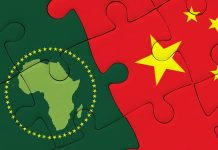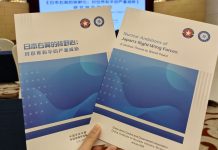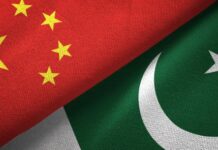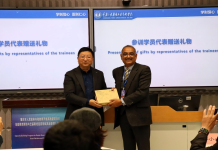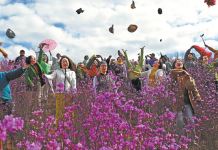DM Monitoring
WASHINGTON: It’s immoral to manipulate any particular family’s story to fabricate reports on Xinjiang as Iraq War stories cannot be repeated, Chinese Ambassador to the United States Cui Tiankai said in an interview with CNN on Thursday.
In response to a question raised by CNN anchor Christiane Amanpour about the cable network’s so-called investigative story at an orphanage in China’s Xinjiang Uygur Autonomous Region, Cui said, “I think it’s very unfortunate. It’s immoral to take advantage of any particular family situation and manipulate it. This is not true journalism. It’s very unfortunate for CNN.”
When asked to comment on the CNN story, Cui said, “And also you’re talking about media coverage, satellite pictures. I remember all these things happened over the years, for instance, in maybe more than a dozen years ago in Iraq, a few years in Syria, in Libya.”
“I still remember you reporting the Iraq War some years ago. So, can people come out and repeat these same stories to the world? No. Because many of the stories were just based on falsehood, were just fabrication,” Cui added. “And it’s very unfortunate some people, including some journalists, they start with very strong bias and prejudice. That’s their problem. That’s how they come to very different conclusions about the particular situation, very much against real facts,” said Cui.
In the last few years, more than 1,000 people, including diplomats and journalists, from over 100 countries, many of them Muslim countries, have visited Xinjiang, the Chinese ambassador said, refuting CNN’s claim that Xinjiang was closed to international officials and journalists. “What they have seen are real facts.”
Cui said the big threat to people of all ethnic groups in Xinjiang, until very recently, was terrorist attacks, hurting and killing thousands of innocent people from all ethnic groups.
“It was a very serious threat. There was strong demand by the local people that the government had to do something to stop it. So this has been our priority, to stop the spread of terrorist attacks. Some of them are connected with international groups like ISIS,” he said.
“There was mounting terrorist, extremist and violent ideology among the local population. That was also very dangerous. But what we did was not start war there. We did not use missiles or drones. We set up efforts for education and training, helping people to learn more about the law, to acquire good skills to improve their lives, find good jobs,” he said.
Now the Xinjiang region has not seen a single terrorist attack in the last few years. “In terms of the population, the Uygur population has more than doubled in the last four decades,” Cui said, adding that “So how can people talk about the so-called genocide?”


